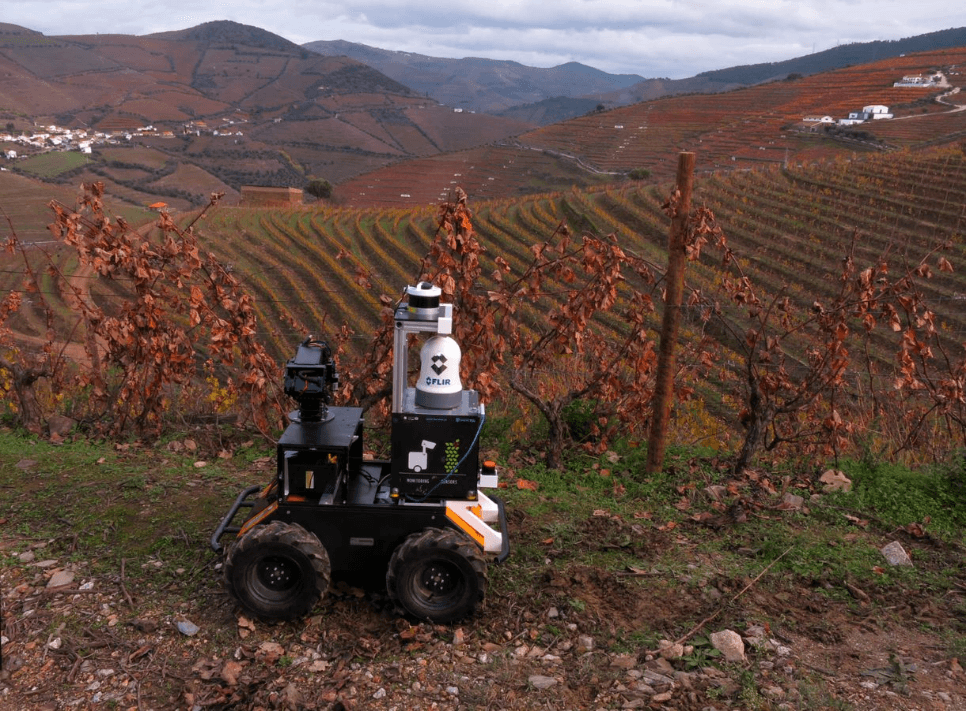INESC TEC develops autonomous robots to spray vines with greater precision
Developing autonomous robots to spray mountain vineyards, without wasting chemicals, and with environmental and economic benefits. This is the main goal of the European project SCORPION - Cost effective robots for smart precision spraying, led by INESC TEC’s Centre for Robotics in Industry and Intelligent Systems (CRIIS).
22nd March 2021
“The existing solutions for spraying vineyards are essentially based on sprayers coupled to tractors, mostly controlled by the driver. This approach is somehow limited, namely in terms of accuracy. In this project, we joined forces to develop an autonomous robot, which travels alone even in vineyards with steep slopes, and calculates the amount of phytopharmaceuticals to be applied, through sensors that measure the density of the plantation. This solution also resorts to UV radiation to reduce the use of chemicals”, said Filipe Neves dos Santos, researcher at CRIIS and project coordinator.
The sprayers will be equipped with electric actuators, UV LEDs and an advanced visual perception system (sensors). Moreover, this robotic technology will be modular, i.e., flexible and adaptable, including advanced navigation, location and security solutions, which allow the robot to act autonomously, while considering the terrain’s slopes and the natural obstacles of mountainous landscapes.
These new technologies will decrease the use of phytopharmaceuticals and increase the levels of mechanisation and automation in mountain vineyards and tree crops, which translates into environmental (less chemical pollution) and economic benefits.
The prototypes will be tested in 2023, in the Douro region - the largest mountain vineyard area in the world. Spain and Italy will also test these robots.
INESC TEC is in charge of leading this project, which includes the Pedro Nunes Institute and the Portuguese Society of Innovation (Portugal), TEYME, DEIMOS, INNOVI and EURECAT (Spain), CERVIM and CNR (Italy), and Wageningen University & Research (Netherlands).
The project received a €2.5M budget through the European Commission's research and innovation programme, Horizon 2020, under the agreement no. 101004085.
The researcher mentioned in this news piece is associated with INESC TEC.


